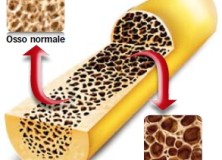
Really you should write pycnogenol with a capital letter. It’s a registered extract of phenols obtained from the bark of the Mediterranean pine Pinus pinaster.
Pycnogenol doesn’t come cheap. This is not only because it contains a high concentration of active ingredients – the extract consists of almost 70 percent procyanidins – but above all because of the impressive stack of studies demonstrating the positive effects of Pycnogenol. The stuff has a rock-hard reputation. As Red Bull is the king of energy drinks, Pycnogenol is the same in the world of protective plant extracts.
It contains substances such as taxifolin, ferulic acid, caffeic acid and catechins. In 2006, Slovakian researchers examined the blood of subjects that had taken Pycnogenol, and they found metabolites of ten substances that were not known to be present in Pycnogenol. [BMC Clin Pharmacol. 2006 Aug 3; 6:4.] So we don’t know the precise composition of Pycnogenol yet.
The substances in Pycnogenol have an antioxidant effect. There are indications that these compounds delay bone decomposition, and therefore may be interesting for post-menopausal women who have osteoporosis. The Japanese mimicked post-menopause hormonal changes by removing the ovaries from female rats. This meant the rats no longer produced estradiol, and as a result their bones became weaker.
SHAM = operated on, but ovaries not removed. OVX = ovaries removed. OVX+PYC = rats with ovaries removed and given 30 mg Pycnogenol per kg bodyweight. The equivalent for humans can be calculated by dividing the dose by 10. So if you weight 70 kg, you’d need to take about 210 mg Pycnogenol daily. The experiment lasted three months.
In the rats that had been given the supplement, the thighbone retained its strength and the cortical bone mass did not decrease, despite the fact that the rats did not have the hormones associated with this.
So it seems that the compounds in Pycnogenol inhibit the processes that occur in bone breakdown. The researchers suggest that Pycnogenol neutralises the free radicals that are involved in these processes. Exactly how this works they don’t divulge.
Source:
Phytother Res. 2011 Jun 28. doi: 10.1002/ptr.3541. [Epub ahead of print].


